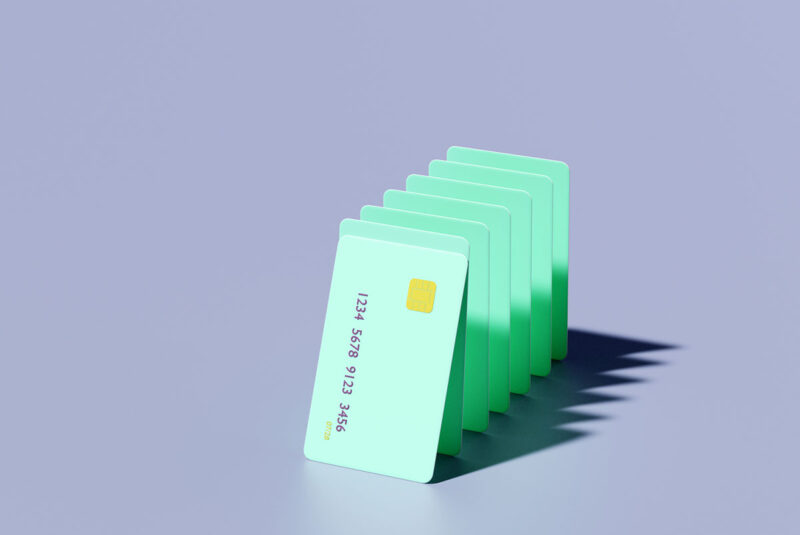Businesses purchase credit reports for many different reasons. One of the more controversial uses for credit reports is when employers perform credit checks to evaluate job applicants.
Despite the controversy, many employers do include credit checks in their background screening processes. According to the Professional Background Screening Association, 38% of employers reported checking credit reports of at least some employment candidates in 2020.
For jobs in the financial sector, potential employers are more likely to review your credit reports as part of the application. And if the position you’re seeking requires security clearance, there’s a good chance the background check will include a credit review as well.
Keep reading for a deeper look at employer credit checks. We’ll touch on what employers may be looking for when they review credit reports, and why this information matters in the first place.
Why Do Employers Check Credit Reports?
Credit reports are tools that others can use to gather information and predict risk. In the lending world, a bank or credit card issuer may review your credit history to get a sense of whether you’re likely to repay your debts on time. Insurance providers use credit to determine the chances that you’ll file a claim (and then price your policy accordingly).
However, your credit reports don’t contain details about your past job performance. So, why would a prospective employer be interested in your credit information?
Here’s why your credit history matters to employers. Employment credit checks can help a company predict whether you’re likely to be a dependable, trustworthy worker.
Credit background checks can help a prospective employer:
- Verify the identity of job applicants.
- Discover conflicting information and other red flags on employment applications.
- Gain insight into how job candidates have managed personal finance matters in the past.
Credit reports can reveal whether someone displays financial responsibility, which might translate into responsibility in other areas. They can also provide a warning if someone is in financial distress, and therefore might be more inclined to fraud or theft.
What Do Employers See When They Check Your Credit Reports?
When an employer checks your credit, it doesn’t see the same report a bank would see when you apply for a credit card or loan. Instead, an employer sees a revised version of your credit report. Depending on where the employer purchases the report, it might come from Equifax, TransUnion, or Experian.
Despite a popular credit myth, employers do not check your credit scores when you apply for a job. The three major credit reporting companies do not include your credit scores on credit reports used for employment screening. For privacy reasons, the reports also should not contain your account numbers. Finally, these modified reports may be missing information that could violate Equal Employment Opportunity Commission (EEOC) regulations, such as:
- Date of Birth
- Marital Status
On a related note, you may be happy to learn that employment credit checks are soft inquiries. As a result, they have no impact on your credit scores.
Your Legal Rights
The Fair Credit Reporting Act (FCRA) sets the rules where the use of credit reports is concerned — including employer credit checks. According to the FCRA, an employer must complete the following steps to use a credit report as part of a background check.
- Get your written permission to access your credit report.
- Provide you with a clear, written notification that it will use credit information as a factor in hiring decisions.
- Warn you that it may reject your job application based on your credit (before it actually decides not to hire you).
- Give you a reasonable time period to respond and explain any mistakes or red flags on the credit report. If credit errors are present, the employer must give you time to dispute those with the appropriate credit reporting agency.
- Send you a final notice, called an “adverse action letter,” explaining why it decided not to hire you. Adverse action letters should contain details about which credit reporting agency provided your credit report, its contact information, and your right to request a free copy of your credit report for the next 60 days.
- Dispose of every copy of the report in a secure manner.
Aside from federal law, state law may also affect whether or not your next job application requires a credit check. Several states restrict or limit the use of credit reports for employment screening, including:
- California
- Colorado
- Connecticut
- Delaware (Public Employers Only)
- Hawaii
- Illinois
- Maryland
- Nevada
- Oregon
- Vermont
- Washington
Some cities like Chicago and New York City limit or prohibit employers from using credit checks in hiring decisions as well. You can check with your state labor office to gather more information.
How Can You Prepare Your Credit for a Job Application?
Knowing that an employer might check your credit during the hiring process gives you options. You can make credit-smart moves before your job application to make the best impression possible. Here are some ideas to help you get started.
- Check your credit reports. It’s always wise to check your three credit reports before you fill out a new application. You can download free copies of your credit reports from Equifax, TransUnion, and Experian from AnnualCreditReport.com. Thanks to the FCRA, you can claim free reports from the credit bureaus once every 12 months.
- Review your credit reports for problems and mistakes. Once you have your three reports, you should comb through them carefully. The primary issues you want to keep an eye out for are fraud, errors, and negative items.
- If you find evidence of fraud or identity theft, consider filing a report at IdentityTheft.gov. You may also want to freeze your credit reports, and perhaps add fraud alerts for added protection.
- You can dispute errors that you find on your credit reports as well. Credit reporting errors could damage your credit history and your credit scores too, although the latter isn’t relevant for employment credit checks.
- Consider paying and settling debts. If you have past-due debts, bringing them current should probably be your priority. For outstanding collection accounts, settling them prior to your job application might benefit you as well. In the event a credit check is part of a company’s hiring process, showing that you’ve taken care of past credit issues might work in your favor. Paying down credit card debt can’t hurt you either. Even if the employer isn’t concerned with outstanding credit card debt, reducing your balances might improve your credit scores and save you money on interest.
- Monitor your credit reports. Searching for a new job can take time. It’s important to monitor your credit reports throughout this process so that if any negative changes happen, you’ll be in a position to take action right away. Monitoring your credit also reveals whether your credit improvement actions are effective or if you need to alter your strategy.
When You Have Bad Credit
Bad credit doesn’t necessarily kill your chances of landing a great new job. In fact, many employers don’t check credit history. Even those that do might not review credit for every prospective employee in every position. A credit check is also just one factor among many that could influence an employer’s hiring decisions.
If you have bad credit, consider writing a detailed explanation about your situation. Perhaps an illness or job loss lead to unavoidable late payments. Or maybe you cosigned for a loved one and the decision came back to bite you. A written explanation gives you a chance to tell your side of the story.
Insider tip
Larger corporations (especially in the financial world) may be more likely to review an applicant’s credit information. Meanwhile, a small business might skip this step. A small business also may be more willing to overlook past credit problems if you can show that you’re working to turn your situation around.
Bottom Line
The idea that poor credit could stand in the way of landing a job may seem unfair. But knowing that a pre-employment check is a possibility empowers you to plan ahead and perhaps stack the deck in your favor. You can make sure your credit is in the best shape possible and, if needed, come up with an explanation for any blemishes in your credit history.



